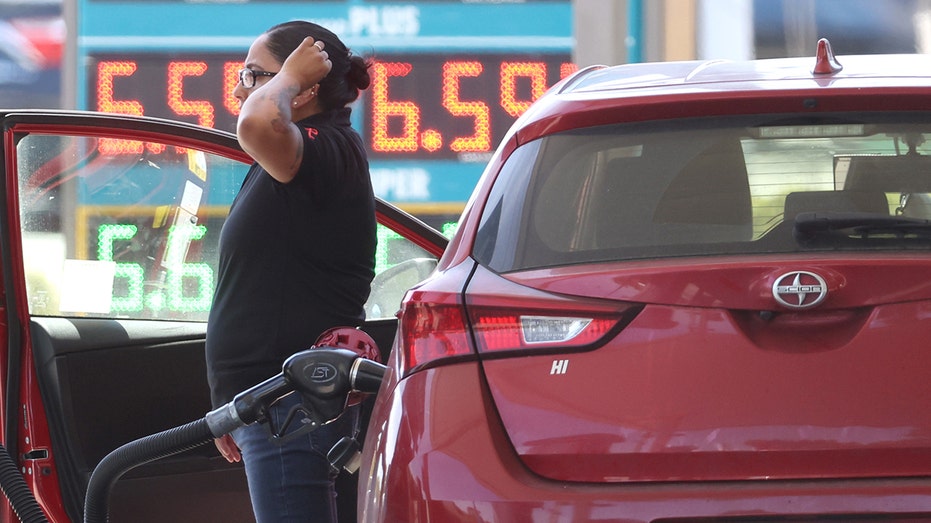High gas prices causing 'demand destruction,' expert says
Gasoline prices are up 50% compared with a year ago
Higher energy prices are ahead as EU bans most Russian oil imports: Andy Lipow
Lipow Oil Associates President Andy Lipow argues inflation has not yet peaked.
Fuel demand across the United States is falling due to continuous record-high prices at the pump.
"Demand destruction," which is when motorists reduce fuel consumption because of high gas prices, "is happening" just ahead of the busy summer driving season, according to Andy Lipow, president of Lipow Oil Associates.
On Tuesday, the national average price for a gallon of regular gasoline hit a record $4.62, up 50% from a year ago. Lipow projected prices will reach as high as $4.75 within the next two weeks.
GASOLINE HITS RECORD HIGH DURING MEMORIAL DAY WEEKEND
These prices are stinging consumers, and forcing them to change their habits.
Even though AAA projected a surge in traffic for the holiday weekend, sources told Lipow that motorists are not only combining trips in their local areas, but they are likely to take shorter trips this summer.

A customer pumps gas into a car on May 18, 2022, in Petaluma, California. (Justin Sullivan/Getty Images / Getty Images)
To make sure that was the case, Lipow looked at data from the Energy Information Administration (EIA).
"The fact is that the EIA is showing that gasoline demand for March was down year-on-year and it was down for April year-on-year," Lipow said. "And that was really the beginning of gasoline price increases."
Lipow projected that gasoline demand will also be down in May compared with last year.
RECORD GAS PRICES FOR THIS LONG 'UNPRECEDENTED': AAA
So far, demand for gasoline for the four weeks ending the third week of May was down 2.6% compared with last year, and down 6.7% compared with pre-pandemic years of 2016-2019, Lipow said, citing EIA data.

Gas prices in Sewickley, Pennsylvania, March 7, 2022. (AP Photo/Gene J. Puskar / AP Newsroom)
The entire West Coast, including Alaska, Hawaii and Nevada, is already facing average gas prices of over $5 a gallon. Arizona is soon to join them within the week, Lipow said.
"Now that we're seeing lots of stations around the country over $5 a gallon, we are seeing the consumer react," Lipow added.
And while demand is down, "it hasn't gone down enough to get us and the rest of the world back in balance," Lipow said. In other words, demand is still outpacing supply, which is keeping pump prices elevated.
Overall, refinery capacity nationwide is down 5.5% since peaking two years ago, according to Lipow.
Lipow said his worst fear is that these higher prices of gasoline, diesel and natural gas, combined with the uptick in everyday goods, will result in an economic slowdown around the world.
If this occurs, it will be very hard to quickly reverse, he said.





















